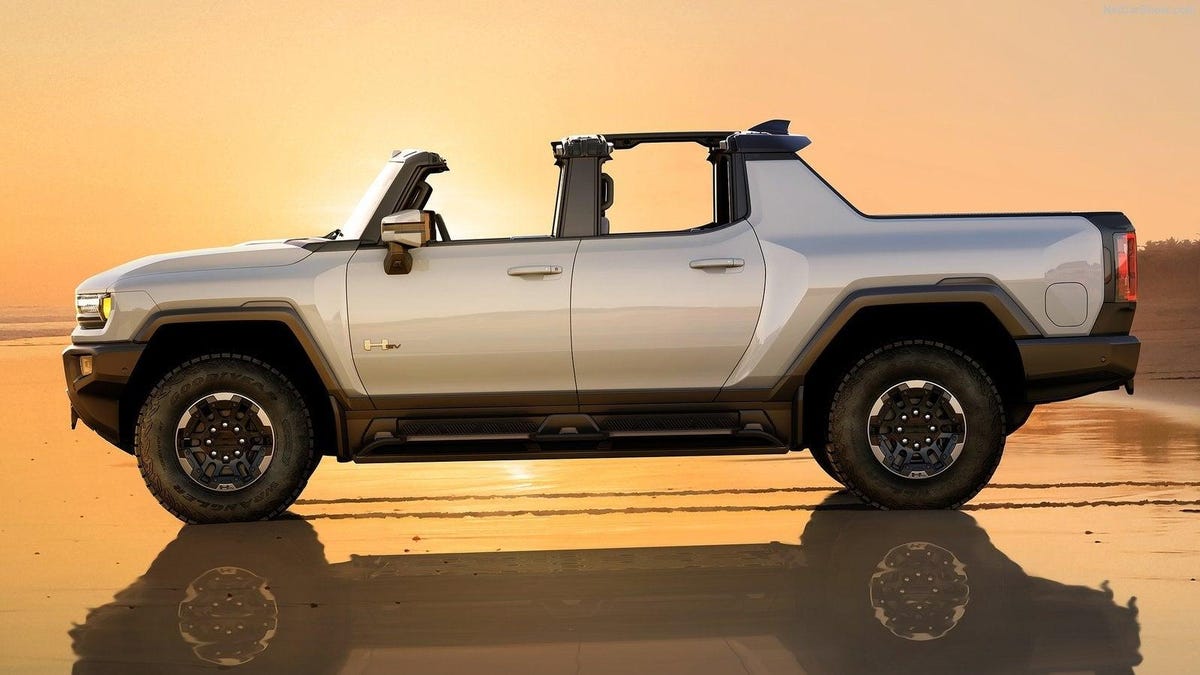Heavy EVs Are Going To Kill Us All

Image: GMC
With the push toward electric vehicles, many would-be negatives are almost being glossed over in the move to get consumers on board with buying them. One of the main drawbacks? Weight. Potentially putting thousands, if not millions, of four- and five-thousand-plus pound vehicles on the road could have serious consequences in car accidents. At least, according to Bloomberg, that’s what many experts are concerned about.
From my own research, most “mainstream” EVs weigh close to 5,000 pounds. Nissan Ariya, Hyundai Ioniq 5, Ford Mustang Mach-E all weigh just under 5,000 pounds. Weights get full-size/heavy-duty truck like on many premium EVs. An Audi e tron can weigh as much as 5,754 pounds; Lucid’s Air tips the scales at just over 5,000 pounds (Lucid knows its heavy; could be why the Air’s weight is nowhere to be found in the vehicle’s official specs on their site); Cadillac’s LYRIQ is expected to weigh just over 5,610 pounds on its base model. And while heavier vehicles tend to offer better protection in a crash, traffic deaths have increased with vehicle weights. And with nearly 20 new truck and SUV EVs coming, there could be an issue.
Michael Anderson, author of a 2011 study that tied car accident deaths to vehicle weight, didn’t expect the onslaught of heavy EVs a decade ago.
At the time of his study, 2011, Anderson was concerned about what a tide of SUVs and super-sized trucks would mean for road fatalities. Anderson was less concerned with electric vehicles because he figured the batteries would show up first in hatchbacks and sedans like the Nissan Leaf and the Tesla Model S, another thesis that panned out.
EVs like the 9,063 pound Hummer EV have changed his outlook. He thinks that people still driving small gas cars could be in trouble. “There could be a window where it’s pretty unsafe to be driving (small, gas-powered vehicles) and getting into multi-vehicle accidents,” he says.
It’s not all danger though. Consumer Reports found that many EVs have better stopping distances than their gas counterparts. But it depends on the vehicle. Most of their tests involved “lighter” EVs. A lot of the heavier stuff has horrible braking distances. Car and Driver tested the Lucid Air and recorded a 163 foot stop from 70; an Audi RS e-tron needed nearly 160 feet. Motor Trend recently tested the Hummer EV and while its 137-foot stopping distance from 60 is better than these cars, it was still three feet worse than a GMC Sierra 3500. With as fast as many EVs are, braking could be as bad as a problem as their weights are. And as Motor Trend pointed out with the Hummer EV, the laws of physics won’t save you.
G/O Media may get a commission
26% Off
Arlo Pro 3 Camera System
Security upgrade
Comes with two security cameras that work with either Alexa or Google Assistant, can record 2K video, zoom in, and has excellent night vision.
It would be beyond easy to get into a situation where you’re traveling way too fast to stop for another vehicle, a pedestrian, an animal, or anything else. You might not even be able to slow down enough to make a corner if you don’t lift and brake soon enough. This is a crazy amount of weight moving ridiculously fast on all-terrain off-road tires, and the laws of physics are merciless.



